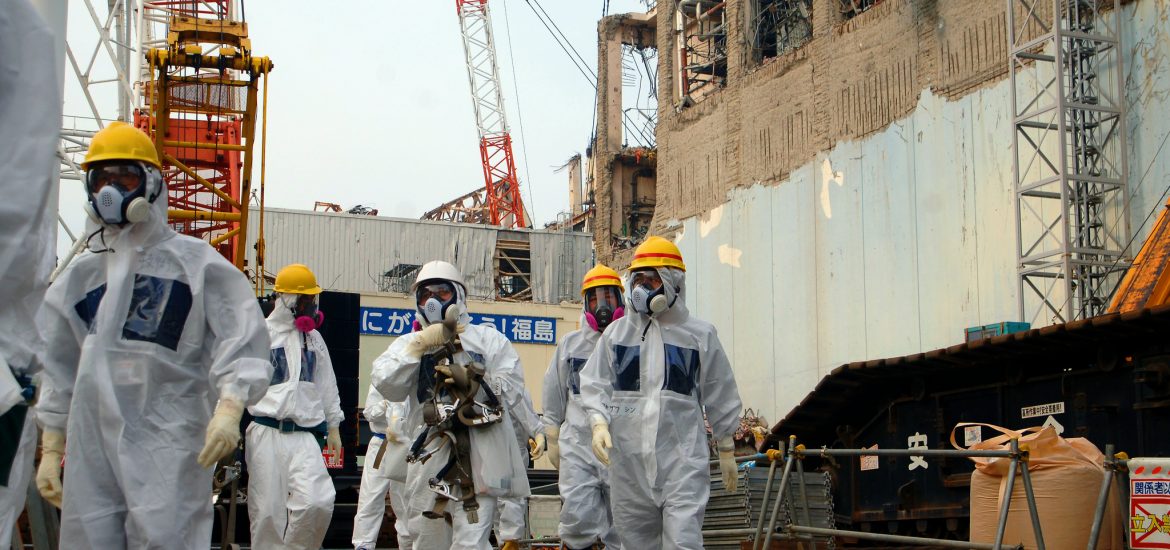
In 2011, after Japan’s Fukushima nuclear disaster (pictured), Chancellor Angela Merkel announced that Germany’s 17 nuclear stations were to be shut down by 2022.
Some sites stopped activity immediately, which put factories making fuel assemblies, metal fuel rods stuffed with uranium pellets and used as fuel for nuclear reactions, facing closure.
In Lingen, Lower Saxony, the fuel rod factory was owned by Advanced Nuclear Fuels (ANF), a subsidiary of French nuclear firm Framatome, which recently changed its name from the bankrupt Avera. “After the decision was made to gradually shut down all German nuclear power plants, we rounded up the staff in the canteen and said that we had to re-position ourselves,” said manager Andreas Hoff.
The factory’s revenue mostly came from replacing fuel elements in German reactors, but by 2014 it had lost 20 per cent of its staff and was working at 40-per-cent capacity.
By 2017 the company was reorganised, with French government investment of €4.5 billion.
The company was rebranded at the beginning of this year and it sold 75 per cent of its nuclear reactor operations to French energy giant EDF.
Framatome stands for Franco-Américaine de Constructions Atomiques.
French wanted to step up nuclear production and export made-in-Germany nuclear technology.
Peter Reimann, the manager at Lingen, sells fuel assemblies to Finland, Sweden, Belgian, Britain and Switzerland.
Framatome’s biggest competitors for the shrinking European market comes from Westinghouse and General Electric.
Last year, with its four sites across Germany, Framatome made around €700 million in sales but its majority stakeholder, EDF, has almost €33 billion in debts.
ANF’s Lingen plant has 3,500 staff also design and construct manufacturing equipment for pressurised and boiling water reactors in countries including Kazakhstan. More than half of the produce leaves Germany.
Falling profits
Meanwhile, the wider energy context is showing signs of decline with coal, lignite and nuclear power station closures as well as falling generation margins hit RWE’s first half performance this year.
According to Germany’s biggest power generator, output from conventional plants declined 18 per cent on year to 54.2 terawatt hours (TWh), mainly due to the closure of the Gundremmingen-B reactor and the Voerde coal power station and removal of two lignite burners for backup supplies.
Output from plants fired by oil and coal in the Netherlands and the UK fell by 4 TWh at a combined 28 TWh as falling generation margins reduced running hours.
German lignite and nuclear earnings were the heaviest hit, down 58 per cent on year with EBITDA.
Fukushima sent shockwaves around the world. Picture credit: Flickr





